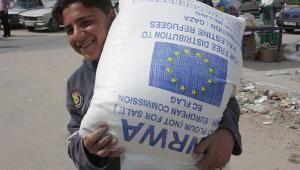In their report on harnessing the potential of humanitarian cash transfers the ODI found “impressive developments” achieved with cash transfers in case studies from Ukraine and Nepal.
Researchers also looked at the impact these had in Iraq, the Democratic Republic of the Congo and Mozambique and stated that well-managed cash transfers could “make the humanitarian system more efficient, responsive and accountable”.
Despite the potential of cash transfers the report states “aid agencies and donors are missing out on meaningful opportunities to harness the efficiency and effectiveness of cash transfers because of restrictive interpretations of mandates, organisational self-interest and incentives to continue with well-established approaches”.
The ODI estimates cash and voucher programming in 2015 was worth about $1.9bn, approximately 7% of international humanitarian assistance, with a more-or-less even split between cash and vouchers.
Co-authors of the report, Sarah Bailey and Paul Harvey, suggested it could be logical for donors to pool resources, or at least coordinate closely, to fund large-scale cash transfer responses to meet basic needs where this is appropriate.
Researchers added that funding a single organisation or combination of organisations working together reduces the need for every agency in a response to maintain separate capacities to assess, monitor and deliver cash transfers.
This approach would ensure that the starting-point of assistance is a holistic understanding of people’s basic needs and how best to meet them, rather than people receiving assistance only for those needs corresponding to an agency’s sector or mandate.
The ODI predicted that the use of cash and vouchers will increase significantly in the coming years. However, for it work effectively, donors, humanitarian organisations and the private sector will need to collaborate and compete to develop better approaches to getting money to those who need it most in times of crisis and disaster, it concluded.













